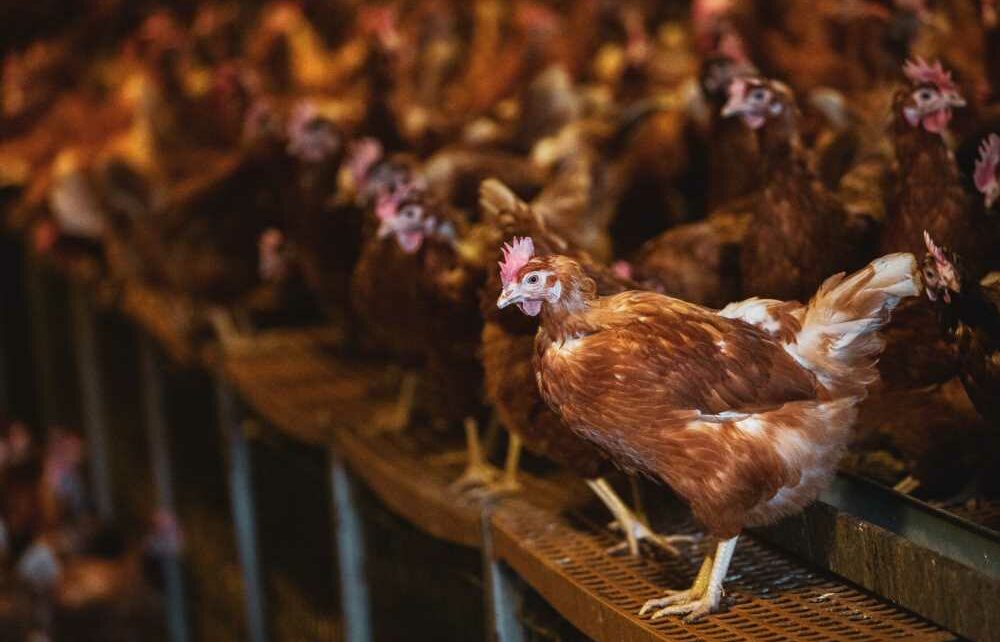A WOMAN has died after contracting a rare strain of bird flu in China.
The 56-year-old is the first person to die from the lethal H3N8 strain – but is the third reported case of the virus.


A World Health Organization report revealed the woman developed symptoms in late February and died on March 16.
She had “multiple underlying conditions” and is believed to have caught the virus at a wet market, where scientists tracing her exposure collected samples positive for H3N8.
Two young boys were infected with the same virus in unrelated cases in China last year but both survived, according to the Telegraph.
There is no evidence the H3N8 can be spread person to person.
read more in health

Bird flu alert as fears of human pandemic grow after new case detected

Bird flu spilling over to humans ‘not farfetched’ as experts call for new vaccines
The WHO said: “No close contacts of the case developed an infection or symptoms of illness at the time of reporting.”
H3N8 has also been detected in various mammals before – including horses and dogs.
In 2011, there was an outbreak of H3N8 among harbour seals in New England, US that killed 162 animals.
For now, the H5N1 bird flu pandemic – which is not related to this strain – remains the greater risk to humans.
Most read in Health

The 'most deadly vape flavour' revealed as cigarette smokers urged to switch

Mum, 27, dies after being found unconscious – leaving behind four daughters

The 5 warning signs of deadly stroke that strike up to 90 days before

Smokers will get FREE vapes and shopping vouchers to quit cigarettes
Dr Pablo Plaza, an expert in veterinary public health, told the Telegraph: “If transmission between mammals have started, the virus has changed and this could increase the risk for human health.”
He added: “Until now, this risk seems to be low – however, we must be alert since [the] virus is changing all the time.
"Several changes in the virus are needed to adapt to human-human transmission, so hopefully they will not occur,” he added.
It comes as the bird flu virus that killed an 11-year-old girl in Cambodia evolved making it better at infecting humans cells, experts have warned.
UK health officials started Covid-style modelling predict the impact of a bird flu outbreak, amid fears the bug could spark a pandemic.
While bird flu typically affects poultry and wild birds, it can be transmitted to mammals, including humans.
The H5N1 strain already has a fatality rate of around 50 per cent among people.
The World Health Organization warns that of the 873 human H5N1 cases reported over the last two decades, just over half (458) have been fatal.
But so far there is no evidence that the virus spreads easily between people.
Fears have been raised in recent weeks due to the "unprecedented" current outbreak among birds and mammals.
Experts worry the sheer scale of the current spread could give the virus more opportunities to mutate, which could enable H5N1 to better spread in humans.
Read More on The Sun

Urgent warning for 150,000 grandparents missing out on £6,875 pension boost

Parents are scrambling to get their hands on kids’ Croc dupes from Home Bargains
In preparation, the UK Health Security Agency produced Covid-style modelling to predict what might happen if the bug began transmitting from human-to-human.
The Government body is also also looking into creating bird flu lateral flow tests.
What are the symptoms of bird flu in humans?
The main symptoms of bird flu can appear very quickly and include:
- a very high temperature or feeling hot or shivery
- aching muscles
- headache
- a cough or shortness of breath
Other early symptoms may include:
- diarrhoea
- sickness
- stomach pain
- chest pain
- bleeding from the nose and gums
- conjunctivitis
Source: The NHS

Source: Read Full Article

